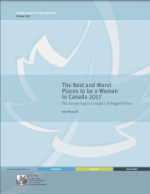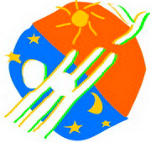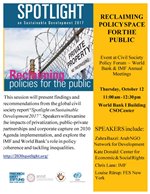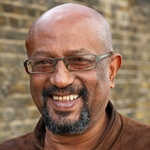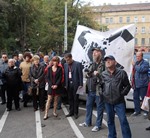Social Watch News
Published on Thu, 2017-10-19 16:47
The International Monetary Fund (IMF) should change its priorities and finally let go of the outdated conditionalities of privatization, deregulation of markets, and "austerity" in social services, which in the past have engendered human rights violations, and instead make loans subject to a new set of conditions.
This is the view of the Independent Expert on the promotion of a democratic and equitable international order, Mr Alfred de Zayas (of the United States), in a report presented to the seventy-second session of the UN General Assembly in New York.
|
Published on Thu, 2017-10-19 16:41
Yesterday, Canadian Centre for Policy Alternatives (CCPA) released their ranking of the best and worst cities to be a woman in Canada. The report, by CCPA senior researcher Kate McInturff, is now in its fourth year and provides an important snapshot of the discrimination faced by women across the country—underemployment, a persistent wage gap, and life-threatening barriers when it comes to health, personal security, and more.
It is also a wake-up call—a reminder that in the absence of meaningful government intervention, Canada’s gender gap has persisted.
|
|
Published on Tue, 2017-10-17 10:10
|
Published on Tue, 2017-10-17 09:57
Peace is the main issue to be highlighted this October 17 during the International Day for the Eradication of Poverty, explains Donald Lee, president of the international committee that is organizing simultaneous activities in Manila, Dublin, Dakar, New York, Paris and Guatemala.
Thirty years ago Father Joseph Wresinski launched a Call to Action declaring that “Wherever men and women are condemned to live in extreme poverty, human rights are violated.
|
Published on Thu, 2017-10-12 00:00
This session will present findings and recommendations from the global civil society report "Spotlight on Sustainable Development 2017" at the Civil Society Forum at the Annual Meetings of IMF and World Bank.
Speakers will examine the impacts of privatization, public-private partnerships and corporate capture on 2030 Agenda implementation, and explore the IMF and World Bank's role in policy coherence and tackling inequalities.
At the event, contributors will present and discuss key findings and recommendations of this year’s report.
|
Published on Wed, 2017-10-11 13:30
Roberto Bissio (coordinator of Social Watch) said that it is vital that NGOs play a watchdog role on the SDGs and this is even more important because the official assessment, evaluation and review of the SDGs is very week, currently the reporting process is voluntary and there is no assessment of the reports that governments submit. For example in the human rights framework with the Universal Periodic Review, what governments say is really scrutinize and recommendations are formulated officially as to what governments should do. This is not the case on the SDGs, not yet at least, and that is why precisely the watchdog, looking at what governments report and what governments plan with a critical view and pushing the agenda forward making sure that the promises are met is an important rol for NGOs.
|
Published on Wed, 2017-10-11 12:39
Tax dodging happens because wealthy nations let it. It’s time for poorer countries to shape the rules. Tax dodging and illicit financial flows began to emerge as a major source of concern for civil society organisations around the year 2000. Since then, revelations that big multinationals such as Google and Starbucks have not paid their fair share of taxes – even in rich nations – have gone from a trickle to a flood. It is now common knowledge that tax dodging affects both industrialised and developing countries alike. Thankfully, tax now takes high priority on regional, national and multilateral policy agendas – a significant step forward. But we still haven’t found a global solution to this most global of problems. International tax rules are in dire need of reform, but to be effective, developing countries need to be involved in shaping them.
|
Published on Tue, 2017-10-10 00:00
Hungarian civil groups headed by the Hungarian United Left (MEBAL) called for a demonstration for 10 a.m. on 8th October 2017 in the heart of the previous Jewish ghetto of Budapest (i. e. on Klauzal Square, where 3 thousand killed Jews were piled up in 1944) in order to protest against the presently very powerful autocracy of the right-wing ruling power of FIDESZ and KDNP and the brutal police violence committed against Attila Vajnai, President of the European Left Workers Party 2006.
|
Published on Mon, 2017-10-09 12:47
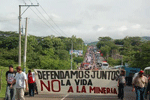
Demonstration against mining.
(Photo: Upside Down World)
|
El Salvador is the first country in Latin America and perhaps in the world to strictly prohibit all exploration and exploitation of underground metals, as well as open-pit mining. The Social Watch coalition of El Salvador welcomes this decision as “a triumph of the struggle carried out by different social organizations, which now have this legal tool to defend the environment and the lives affected”. However, they remind that “there has historically been a vacuum in the effective implementation of laws and agreements that guarantee the protection of the environment and vulnerable areas, mainly because of the lack of citizen participation in monitoring and implementing the laws”. They also demand with urgency a “comprehensive fiscal reform to effectively combat tax evasion and avoidance, thus guaranteeing needed revenues for implementing the SDGs”.
|
Published on Mon, 2017-10-09 12:45
The government of Bangladesh has announced an inclusive approach to development so that the poorest and the most vulnerable populations can be integrated into its national development efforts. This "whole society approach" requires the engagement of all stakeholders in the process. Civil society organizations envisage a strengthening of democratic institutions and participatory governance to achieve the SDGs in Bangladesh, with participation of civil society in all levels of implementation, from the national to the grassroots level.
They therefore demand that "IFIs and the WTO must respect policy spaces for LDCs and developing countries so that national sovereignty in decision-making and the very nature of the State in respect to welfare and redistributive justice can be protected".
|
SUSCRIBE TO OUR NEWSLETTER
Submit

|

